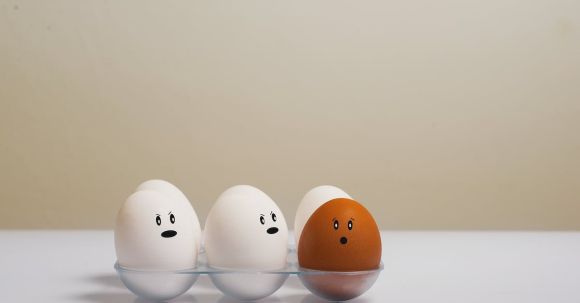Prejudice and discrimination are pervasive issues that have plagued societies for centuries. These concepts have deep roots in human psychology, often stemming from a combination of cognitive biases, social conditioning, and the need for social identity. By delving into the psychology behind prejudice and discrimination, we can gain a better understanding of these harmful behaviors and work towards creating a more inclusive and tolerant society.
The Formation of Prejudice
Prejudice is the preconceived judgment or opinion about an individual or a group based on stereotypes, rather than on personal experience or knowledge. It often arises from the human tendency to categorize others into distinct groups, simplifying complex social interactions. This categorization process is a cognitive shortcut that helps our brains make sense of the world around us.
However, this categorization can also lead to the formation of stereotypes, which are generalized beliefs about a particular group. Stereotypes can be both positive and negative, but it is the negative stereotypes that often give rise to prejudice. When we encounter individuals who fit into a negative stereotype, our brains tend to confirm our pre-existing beliefs, leading to biased judgments and discriminatory behavior.
The Role of Social Conditioning
Social conditioning plays a significant role in the development of prejudice and discrimination. From a young age, we are exposed to various social influences, such as family, friends, and media, which shape our beliefs and attitudes towards different groups. If these influences consistently convey negative messages about a particular group, it can lead to the internalization of biases and the perpetuation of discriminatory behaviors.
Moreover, social conditioning can also create in-group/out-group dynamics, where individuals perceive their own group as superior and others as inferior. This ingroup bias can further fuel prejudice and discrimination, as individuals seek to maintain a positive social identity by denigrating those outside of their group.
The Need for Social Identity
The need for social identity is another psychological factor that contributes to prejudice and discrimination. Humans have an innate desire to belong to social groups and derive a sense of self-worth from these affiliations. In order to maintain a positive social identity, individuals may engage in biased thinking and discriminatory behavior towards out-group members.
Research has shown that individuals are more likely to discriminate against out-group members when their social identity is threatened. This threat can arise from factors such as competition for resources or a perceived loss of status, leading to defensive reactions and the reinforcement of prejudice.
Breaking the Cycle
Understanding the psychology behind prejudice and discrimination is crucial for breaking the cycle of bias and creating a more inclusive society. It is important to recognize that prejudice is not an inherent trait but a learned behavior that can be unlearned through education and exposure to diverse perspectives.
Promoting empathy and fostering positive intergroup contact are effective strategies for reducing prejudice and discrimination. By encouraging individuals to step outside their comfort zones and engage with people from different backgrounds, we can challenge stereotypes and promote understanding.
Furthermore, it is essential to address the systemic factors that perpetuate prejudice and discrimination. Policies and laws that promote equality and fairness can help dismantle the structural barriers that contribute to inequality.
Conclusion
The psychology of prejudice and discrimination is multifaceted and complex. It encompasses cognitive processes, social conditioning, and the need for social identity. By understanding these underlying factors, we can work towards creating a more inclusive society that values diversity and challenges discriminatory behaviors. It is only through collective efforts and a commitment to change that we can overcome prejudice and discrimination and build a more equitable future.
